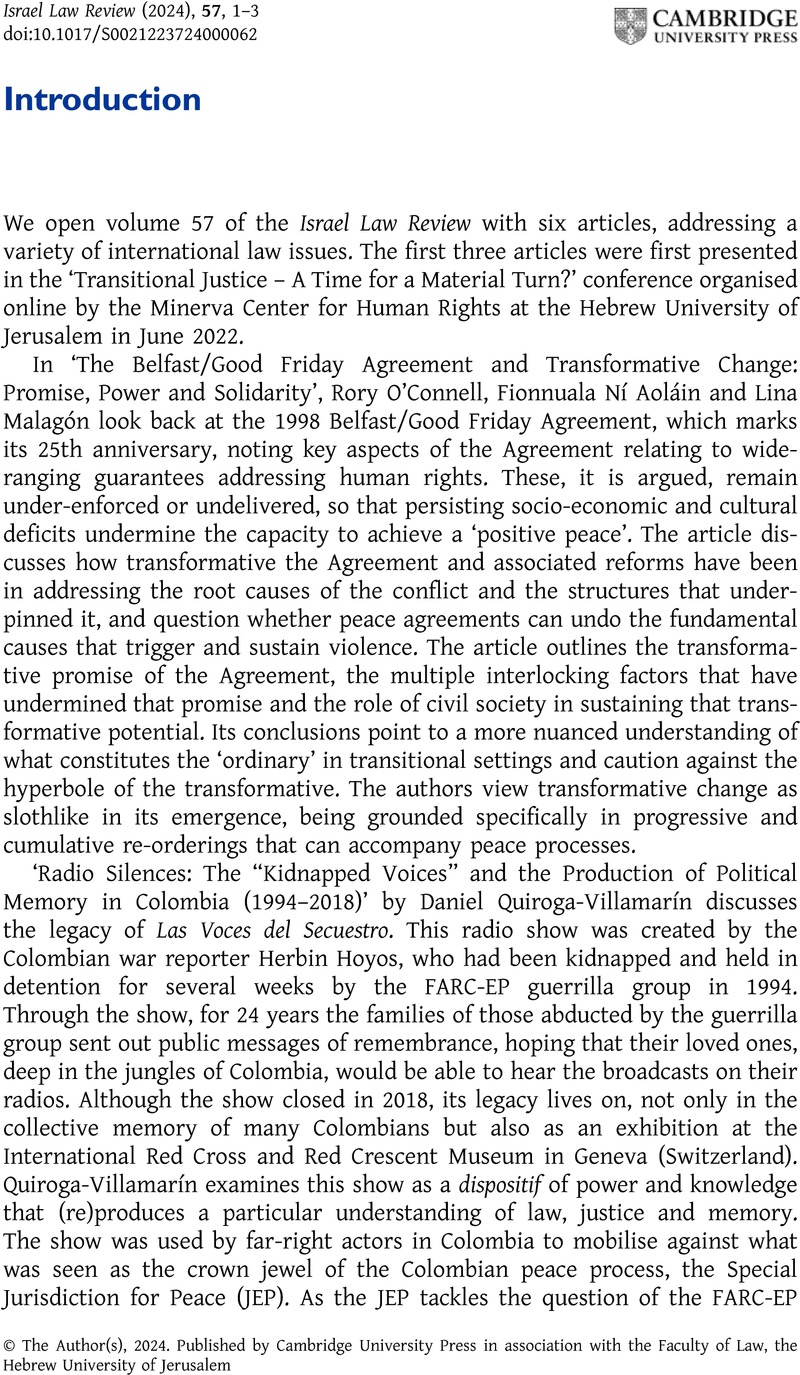No CrossRef data available.
Article contents
Introduction
Published online by Cambridge University Press: 08 March 2024
Abstract
An abstract is not available for this content so a preview has been provided. Please use the Get access link above for information on how to access this content.

Information
- Type
- Introduction
- Information
- Copyright
- Copyright © The Author(s), 2024. Published by Cambridge University Press in association with the Faculty of Law, the Hebrew University of Jerusalem

